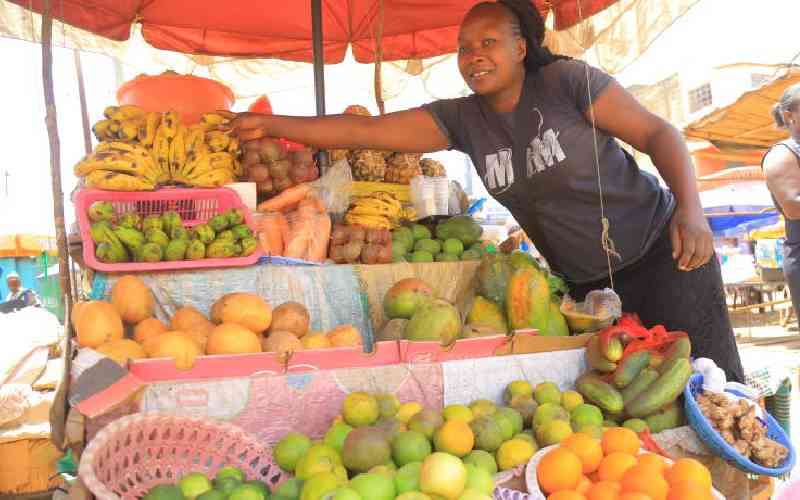


Economists' love for jargon and data gives them prestige, but alienates them from ordinary folks. Ask them about inequality, and they will quote the Gini index. Ask them about economic growth, and they'll quote Gross Domestic Product. Some will ask why the product is included, yet services are included.
Let's stop digressing and focus on inequality using the Gini index since 1912.
It simply shows the level of inequality or income distribution with values from zero to one. Zero means there is perfect equality as income is equally distributed.
One shows one person owns all the income, a perfect inequality. Latest data (not the same year) give South Africa's Gini index as 0.63 and Kenya's 0.39, China 0.36, the US 0.42 and Japan 0.32. You can get more detailed data online, including for our neighbours.
Let's get down to earth, from statistics into the real world. One easy indicator of inequality is where one lives. Compare leafy suburbs and slums. Never mind that they are often neighbours! Even within the same neighbourhood, the type of house matters, the size and the material used for construction.
And the contents of the house. How many inches is the TV? Is there a carpet, fridge, WiFi, among others?
Outside the house, away from our homes, what we wear betrays our socio-economic class; inequality. Are they branded or not? You can easily get the value of one's total clothing.
Add spectacles, the thicker they are, the less moneyed. Hairstyles and cuts, braces, and even the walking style. Someone from Shamakhokho and one from Muthaiga do not walk the same way! Means of transport?
Walk to work, drive, take a matatu (including shuttles) or Uber? Or is driven, chauffeured.
Is the person self-employed or employed? Does it have an office? Which size? Which floor? Which side of the city? Other indicators include where you worship, a chapel or a church. Which game do you play, darts or polo?
Where do your children school? Where do you take your holidays, shaggs or abroad? Add other indicators of inequality, please. Sadly, inequality defines our society. It has always defined society from feudalism to modern democracy.
As a country develops, inequality seems to peak then decline. Globally, inequality has been on a decline, but not within countries, says the Brookings Institution.
Let's also note that inequality erodes trust in government, a fact Kenya Kwanza exploited in the 2022 polls.
Tackling inequalities
Enough drama. How can we address inequality? Taxation reduces inequality; those who make more pay more taxes, which presumably uplifts the disadvantaged. In advanced countries, tax is a hot-button issue; they want to know where their tax money goes.
Taxation, if well used, ensures no one is left behind. But in Kenya?
Taxes fund services that are better provided in bulk, like roads, sewerage, power and national security - public goods. It should ensure no one falls through the cracks by providing subsidised housing, education, health, food and other basics. Currently, there is a big debate on a basic income for all.
Education is another means to reduce inequality. A good education ensures that the path to upward mobility is open to all and that meritocracy works. Do youngsters get skills that will enable them to earn a living and pay taxes? That is why elitism is disdained; it denies the vast majority a good education and perpetuates inequality.
What's a good education? It provides skills, either for self-employment or employment.
A good education makes graduates confident to solve national problems, their own problems and advance the frontiers of possibility. That is why mentoring and coaching fads worry me.
Another powerful route to addressing inequality is by changing the laws and regulations.
Dig deeper, and it often surprises you how laws and regulations (and their cousin politics) perpetuate inequality. Throughout history, changes in law have changed the cause of inequality. Remember the Magna Carta in the UK, the Civil Rights Act of 1964 in the United States (US), and the repealing of the Group Areas Act in South Africa? Add other monumental changes in law.
Inequality can be changed by individual convictions, like Rosa Parks, Martin Luther and Mahatma Gandhi, among others. Share our local list.
Religion has also played a role in reducing inequality, but its success is mixed. How did it co-exist with colonialism? How about today? Add traditions that put a premium on respect for one another and disdain individualism. Do monarchies perpetuate inequality?
Inequality is tied to economics: Access to wealth, privileges and high standards of living. It's everyone's dream to have a good life as defined by culture and traditions. But that should not be at the expense of others, or without their consent through voting.
Equality has evolved over the years, from feudalism with communism as an interlude and democracy in ascendancy today. We haven't got a perfect socio-economic model to address inequality.
We must keep innovating so that the vast majority live meaningful and fulfilling lives for the few years this small planet is their home. Food for thought: Will AI reduce or exacerbate inequality?
Your email address will not be published. Required fields are marked *
No comments yet. Be the first to comment!